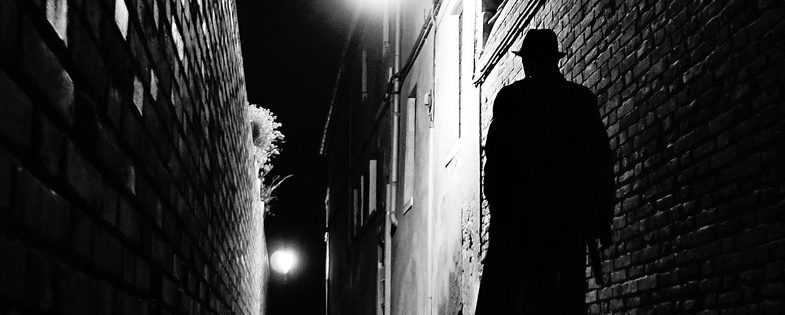Image courtesy of Obsidian Urbex Photography.
“Breakfast, 4:00.”
I shrugged at the cryptic-sounding note. I could get off a bit early and be at the bistro by then. I crumpled up the note, sticking it in my pocket as I left the booth.
The casino was busy for the relative early hour, the twilight from recent sunset still burnishing the terracotta roofs of the nearby buildings. As I walked around to the employee entrance I noted a string of luxury automobiles lining up out of the promenade’s motorway to the casino’s porte-cochère. I stood at a corner watching the wealthy and the well-dressed exit their vehicles and head inside. It was the usual parade of unctuous middle-aged men and their younger escorts, the occasional grand old couple out for a night of proving to themselves they weren’t old, and young, carelessly stylish people playing with their parents money. Most of the slightly less affluent arrived looking for their excitement on foot. I didn’t recognize anyone important so headed inside before my lurking became conspicuous.
Changing out of my coat and into the casino blazer I saw Thibalt in the locker room. The bruise around the left side of his mouth made me realize how little time had actually passed since Sarti’s stunt in the main room. I asked him how he was.
“I am fine,” came the unsurprising reply. He motioned a circle that encompassing his entire face. “I think the punch might have made improvements.” He smiled showing the chipped tooth he hadn’t had the time or money yet to repair.
I chuckled, trying to show some appreciation for his stoicism. He asked me which sector I was working and said that I didn’t know, using that as an excuse to head to Central. Picking up my earbud and signing in I noticed Jasper wasn’t there. I stepped to the back of the room and picked up a house phone, lifting the receiver from the cradle. I dialed the number I had gotten off the mobile.
A heavily accented and cautious, “Bonjour,” answered. In reply I identified myself. “You aren’t calling from the phone.” It wasn’t Mitnick. I had heard Whip speak very little, but I was fairly certain it wasn’t him either. Brick maybe. Mitnick probably had a stable of heavies that I hadn’t met yet.
“I forgot it at home,” I lied. There was a muffled consultation on the other end of the line. “There is a party tomorrow night.” The voice provided an address, someplace not far from the villa I had met Mitnick at, maybe even the same one. “You are welcome,” was the conclusion and the line went dead. The last words didn’t sound like an invitation, but some mistranslation of an order.
I spent some time in my sector, staring blankly into space, the buzz of the casino security in one ear, the constant noise of the slot machines in the other. This was only broken by the occasional whoop of victory or groans of frustration. Most of the gamblers in this part of the casino didn’t interact with each other, but stared dead-eyed at whichever machine they thought would pay out, only moving to refill their stock of coins. I could feel myself mirroring that, but me mentally staring at the intractable problem of the dead Russian. If Sarti hadn’t had him killed, that left the entire town as a suspect. But who else would want to kill him? He had been at the Factory before he had gone missing and had very likely gone missing from the vicinity. And the Factory was a routine hangout for the Corsican and his crew, who were also somehow connected to Mitnick. The coincidences piled up high enough that it struck me as very unlikely that the killer was a new player.
An idea came to me then that was outrageous enough that I heard Cheryl’s voice, this time asking me if the implementing this plan didn’t seem like a good idea only in the boredom of my working shift, safely behind the thick walls and security layers of the casino. It reminded me that I wanted to protect Sophie.
“We’re only in this ‘cause Sophie wanted to be,” I countered out loud, surprising a couple of pensioner tourists walking by, old enough that they looked at each other to confirm I had spoken, and it wasn’t some aural hallucination of elder years. Watching them pair scuttle away with an awkward burst of speed made me think Sophie was probably as restless as me, the women she brought home a product of that and her compassion.
I decided it was time to stop trying to hide Sophie away and let her out to play.

























